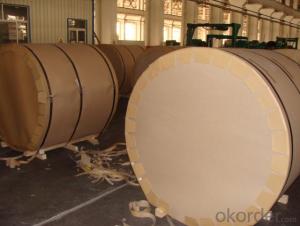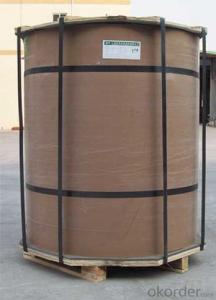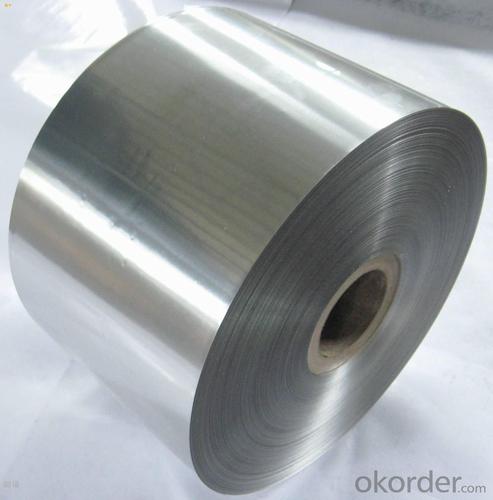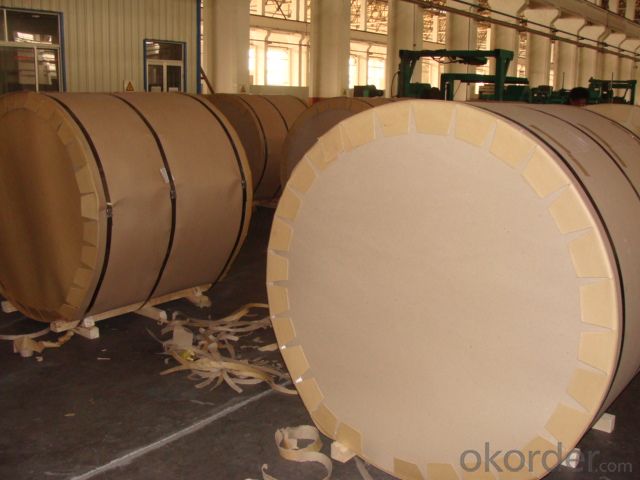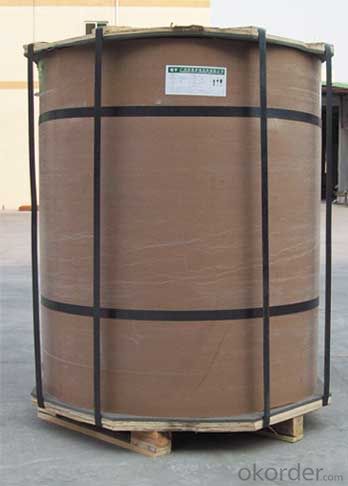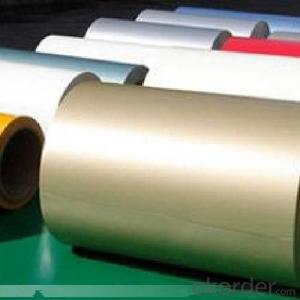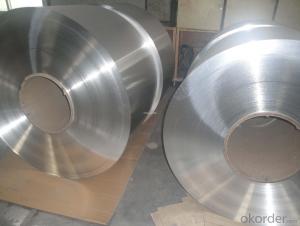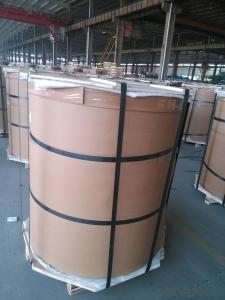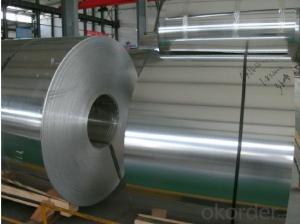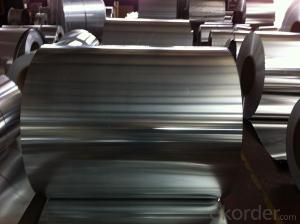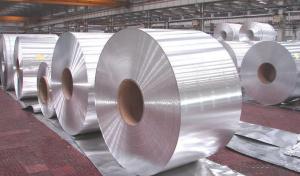Aluminum Coils Inc Tampa AA1070 Aluminum Coils Used on Construction
- Loading Port:
- Shanghai
- Payment Terms:
- TT OR LC
- Min Order Qty:
- 5 m.t.
- Supply Capability:
- 10000 m.t./month
OKorder Service Pledge
OKorder Financial Service
You Might Also Like
1.Structure of AA1070 Aluminum Coils used on Construction Description
AA1070 Aluminum Coils used on Construction has great ductility, heat conductivity, anti-corrosion and moisture resistance properties.
AA1070 Aluminum Coils used on Construction is widely used for PP cap stock, hot rolled thick plate, PS base plate, aluminum curtain wall base plate, the traffic sign ,air-conditioner heat and exchangers, food container, household foil, pharmaceutical packing, cigarettes packing.
2.Main Features of AA1070 Aluminum Coils used on Construction
• Superior quality of raw material
• Reasonable and stable chemical composition
• Accurate tolerance
• Goode mechanical property
3.AA1070 Aluminum Coils used on Construction Images
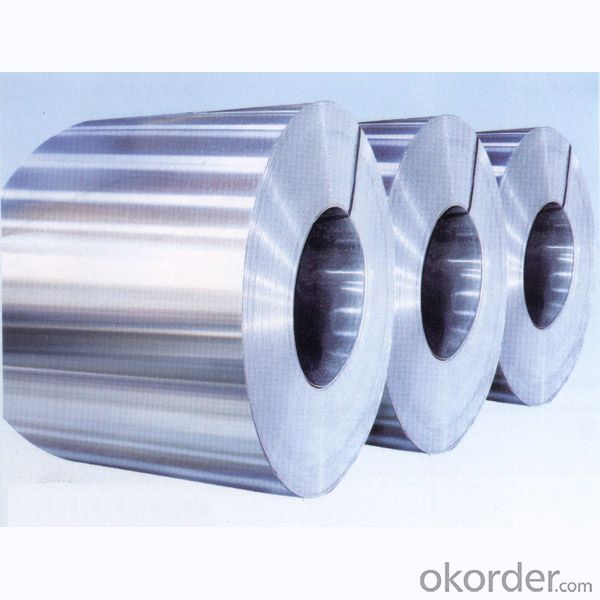
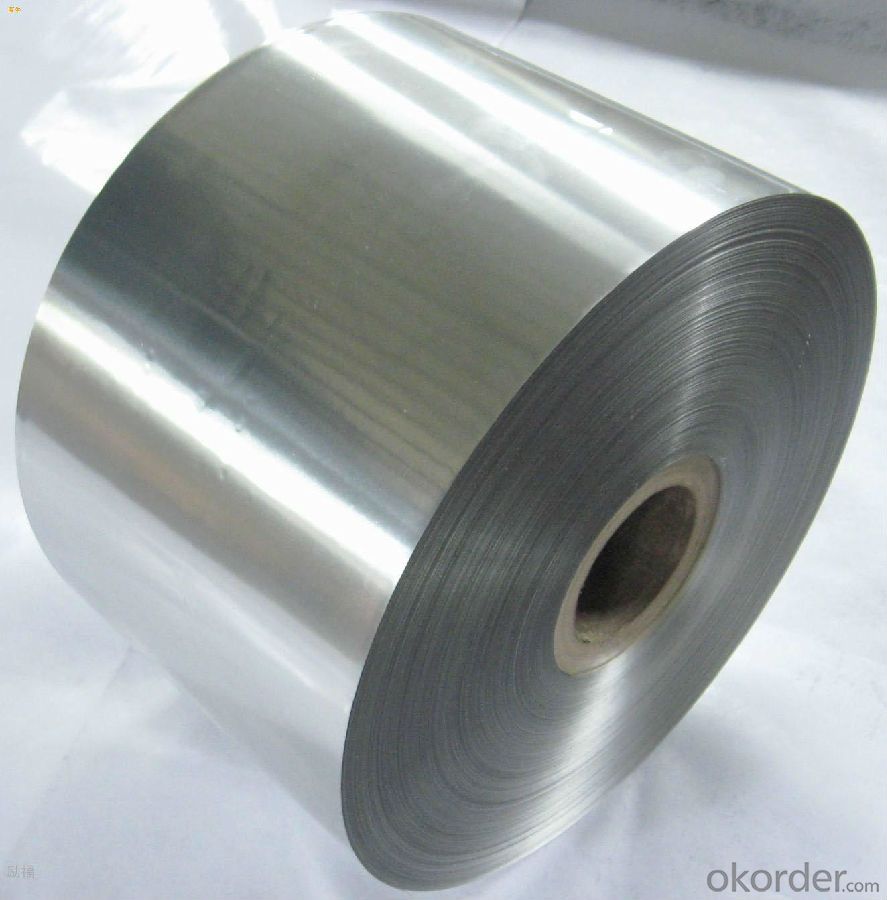
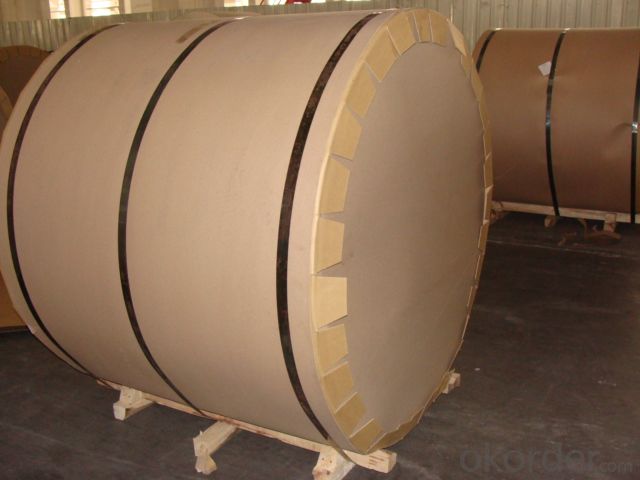
4.AA1100 Aluminum Coils used on Construction Specification
Alloy | A1070 |
Temper | H14, H16, H18, H22, H24, H26, H32, O/F |
Thickness | 0.2mm -- 100mm |
Width | 30mm -- 1700mm |
Standard | GB/T 3880-2006,EN,ASTM,JIS |
5. FAQ of AA1100 Aluminum Coils used on Construction
A.How to guarantee the quality?
Customers are welcome to our mill to visit and check the products. Besides, we can arrange a third party to test AA1070 Aluminum Coils used on Construction.
B.When will you deliver the products?
AA1070 Aluminum Coils used on Construction will be delivered within 35 days after receiving advanced payment or original L/C.
- Q: How do aluminum coils contribute to the thermal conductivity of products?
- Aluminum coils play a vital role in enhancing the thermal conductivity of various products, thanks to their exceptional thermal properties. These coils, crafted from aluminum, excel at transferring heat with great efficiency. Compared to common metals like steel or copper, aluminum boasts significantly higher thermal conductivity. Consequently, when incorporated into products, aluminum coils swiftly and effectively move heat from one area to another. For instance, in air conditioning units, aluminum coils find frequent use in HVAC systems. As refrigerant courses through the coils, the aluminum material rapidly absorbs heat from the surrounding air. This process facilitates efficient cooling, swiftly removing heat from the air and expelling it, thereby creating a more comfortable indoor environment. Likewise, in heat exchangers, aluminum coils aid in the transfer of heat between two fluids or gases. The aluminum's strong thermal conductivity ensures efficient heat exchange, guaranteeing the desired temperature is reached promptly. Additionally, the lightweight nature of aluminum coils makes them easier to handle and install in a range of products. This characteristic proves particularly advantageous in industries such as automotive, aerospace, and electronics, where weight reduction is critical. In conclusion, aluminum coils make a significant contribution to the thermal conductivity of products by efficiently transferring heat, thanks to their impressive thermal properties. Furthermore, their lightweight nature enhances their versatility and practicality across multiple industries.
- Q: May anyone tell me what's the product when hydrochloric acid reacts with aluminum?HCl + Al → ?
- Amonia Hydrochlorite
- Q: What are the main causes of aluminum strip rolling?
- Different thickness analysis is not the same, is curly after the thickness of the upper rib, or out of the roll can be visual?
- Q: What are the common cutting and shaping methods for aluminum coils?
- There are several common cutting and shaping methods for aluminum coils, depending on the desired outcome and application. One of the most common methods is shearing, which involves cutting the aluminum coil with a sharp blade. Shearing is ideal for straight cuts and is often used for applications that require precise dimensions, such as manufacturing automotive parts or construction materials. Another method is slitting, which involves cutting the aluminum coil into narrower strips. Slitting is commonly used in industries such as packaging, where thin strips of aluminum are needed to create products like food packaging or aluminum foil. For more complex shapes, such as curves or bends, a method called press brake forming is often used. In this process, the aluminum coil is placed in a press brake machine and bent into the desired shape using a punch and die. Press brake forming is commonly used in industries like aerospace or architectural design, where intricate shapes are required. Additionally, laser cutting is a popular method for cutting aluminum coils. Laser cutting uses a high-powered laser beam to cut through the aluminum, allowing for precise and intricate cuts. This method is often used in industries like signage or electronics, where detailed designs are necessary. Overall, the common cutting and shaping methods for aluminum coils include shearing, slitting, press brake forming, and laser cutting. These methods offer various options for manufacturers to shape aluminum coils according to their specific needs and requirements.
- Q: What are the rules and regulations regarding the use of aluminum coil in commercial kitchen settings?
- <p>Yes, there are regulations on the use of aluminum coil in commercial kitchens. These regulations often relate to food safety, hygiene, and the material's suitability for contact with food. Aluminum is generally safe for food contact, but it must meet specific standards to ensure it does not leach harmful substances into food. Regulations may vary by country or region, with some areas having strict guidelines on the types of aluminum alloys allowed and their intended use. Compliance with these regulations is crucial to avoid health risks and legal penalties. It's important for commercial kitchens to use food-grade aluminum and to follow local health department guidelines.</p>
- Q: Are there any specific safety guidelines for installing aluminum coils?
- Installing aluminum coils requires following specific safety guidelines. Consider the following key points: 1. Personal Protective Equipment (PPE): Wear appropriate PPE, such as safety glasses, gloves, and a respirator when working in confined spaces or handling chemicals. 2. Handling and lifting: Use proper lifting techniques and equipment to prevent strains or injuries caused by the weight of the aluminum coils. Clear the area of obstacles and ensure enough space for safe maneuvering. 3. Secure the area: Clean the work area and remove any potential hazards or debris to prevent accidents. 4. Electrical safety: Adhere to electrical safety guidelines when dealing with electrical connections or wiring. Turn off the power supply and use suitable tools and equipment to avoid electric shocks. 5. Proper ventilation: Ensure proper ventilation in the work area to prevent the accumulation of harmful fumes or gases, especially during soldering or welding. Use exhaust fans or ventilation systems if necessary. 6. Follow manufacturer's instructions: Always follow the manufacturer's guidelines for handling, mounting, and connecting aluminum coils. Failure to do so may result in substandard installation or safety hazards. 7. Training and expertise: Ensure the installation team is properly trained and experienced in working with aluminum coils to minimize risks and ensure a successful installation. By adhering to these safety guidelines, you can achieve a safe and efficient installation of aluminum coils while reducing the potential for accidents or injuries.
- Q: I know this question is not so bright, but I am very curious why do we recycle aluminum cans? Is it that they are not biodegradable?
- Heck yeah. Even an old school, smoke-belching industrialist would recycle *metal*. That's always been true. Why did people suddenly stop recycling metals? Have you PRICED metals lately? Aluminum is over a buck a pound, copper is $3 a pound, steel is over $200 a ton.
- Q: What is the typical conductivity of aluminum coils?
- Aluminum coils exhibit a relatively high typical conductivity, with a range of values between 34 and 38 million Siemens per meter (MS/m) at room temperature. Renowned for its exceptional electrical conductivity, aluminum finds extensive application in diverse electrical uses such as power transmission lines, electrical conductors, and coils. This notable conductivity enables the smooth and efficient flow of electric current through aluminum coils, rendering them apt for dependable and efficient electricity conduction.
- Q: Is it possible to use a saw to cut aluminum coils?
- <p>Yes, aluminum coils can be cut with a saw, but it's important to use the right type of saw. A hacksaw or a fine-toothed metal cutting saw is suitable for cutting aluminum. Lubrication is also crucial to reduce friction and prevent the saw blade from overheating. When cutting aluminum, it's advisable to use a cutting fluid or a light machine oil to keep the blade cool and ensure a clean, smooth cut. Always follow safety precautions and wear appropriate protective gear when cutting metal.</p>
- Q: hey, my dad and i are working on painting our front door and the current piece of aluminum in front of it wont go with the new color. it doesnt look like it can be changed out so we are wondering, other than spray paint, what can you put on aluminum to make it turn permanently black. my dad mentioned gun blue, but that only works on steel. thanks
- Aluminum okorder / You could take it to someone that powder coats metals.
Send your message to us
Aluminum Coils Inc Tampa AA1070 Aluminum Coils Used on Construction
- Loading Port:
- Shanghai
- Payment Terms:
- TT OR LC
- Min Order Qty:
- 5 m.t.
- Supply Capability:
- 10000 m.t./month
OKorder Service Pledge
OKorder Financial Service
Similar products
Hot products
Hot Searches
Related keywords

